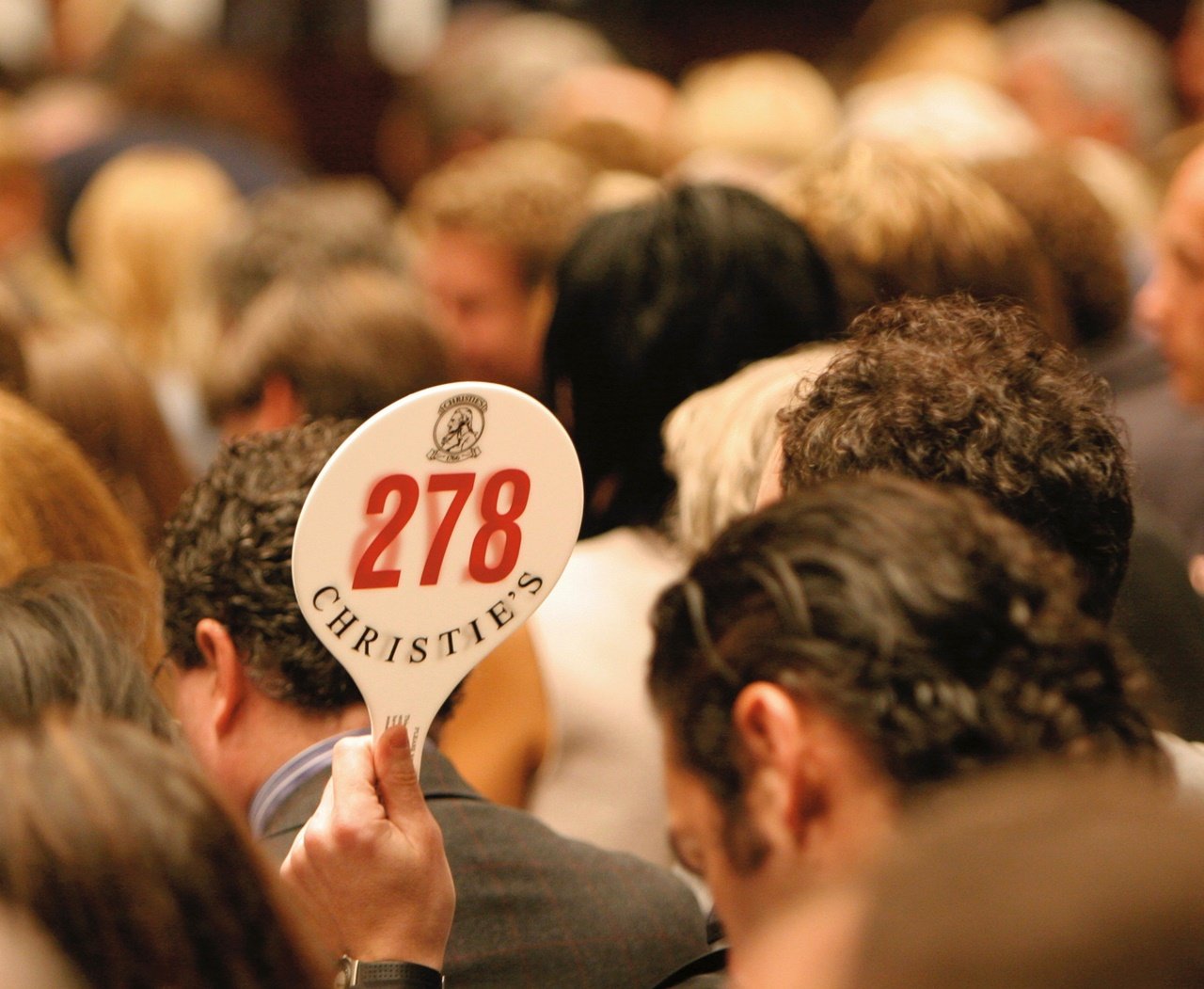
Christie’s is changing the fees that it charges buyers in a measure to raise revenue. It’s the first time since October 2013 that the auction house has updated the structure on the fees it charges buyers; the change takes effect September 19, and will apply to all the house’s wares but wine, Marion Maneker notes in Art Market Monitor.
Auction houses traditionally charge graded fees, assigning the highest percentage on lower-priced items and a lower percentage as amounts go up. With the changes, the house aims to increase profitability by raising the floor on which it charges its steepest fees and widening the band on which it charges its second-highest fees.
The house will now charge 25 percent on the first $150,000 of the hammer price, 20 percent on amounts from $150,001 to $3 million, and 12 percent on amounts north of $3 million.
While the percentages the house charges at various price levels remain the same, the thresholds have changed. Christie’s previously charged 25 percent of the first $100,000, 20 percent up to $2 million, and 12 percent above $2 million.
Under the old structure, the buyer of a $5 million artwork would pay a fee of $765,000; under the new regime, that fee will be $847,500.
The graduated fees apply at all the house’s locations except Shanghai, where all purchases are subject to the 20 percent rate. The thresholds are slightly different in Paris, where the 25 percent fee pertains to the first €50,000 of the hammer price, 20 percent on amounts from €50,001–€1.6 million, and 12 percent above €1.6 million.
Sotheby’s, Christie’s main competitor, charges 25 percent on the first $200,000, 20 percent on the price between $200,000 and $3 million, and 12 percent above $3 million.
artnet News reached out to Christie’s for comment, but did not receive an immediate reply.